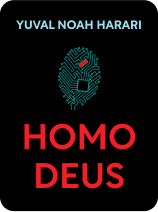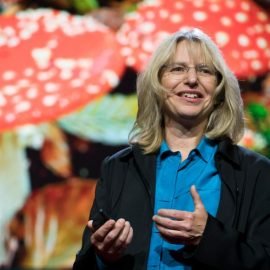

This article is an excerpt from the Shortform book guide to "Homo Deus" by Yuval Noah Harari. Shortform has the world's best summaries and analyses of books you should be reading.
Like this article? Sign up for a free trial here .
Is there any common thread between religion and science? What role does religion play in science? And how does science help to keep the institution of religion in check?
While many view religion and science as enemies of one another, they influence each other in two profound ways. Specifically, science draws its ethical considerations from religion, while religion is kept in check by scrutiny of science.
Here is how religion and science are interrelated.
Connecting Religion and Science
While many think that religion and science, science relies on religion to create ethical boundaries. While scientists can discover the solutions to physical problems, they can’t objectively determine the ethical ramifications of their actions.
For example, in 1992, the Chinese government began the construction of the Three Gorges Dam on the Yangtze River. The dam was being built to generate billions of dollars worth of electricity. However, the creation of the dam would result in the flooding of over 200 square miles that contained villages and towns as well as archaeological sites and animal habitats. While science could solve the problems of actually creating the dam, it couldn’t solve the ethical problems surrounding its construction. For this solution, political leaders had to rely on socio-economic religion (communism) to weigh the creation of electricity against the loss of property and ecological environments.
Both religion and science are more interested in power and order than truth. Both seek to change the world around them rather than just accept their fate. For example, when faced with a plague, neither group will simply accept the “truth” of a deadly plague. Instead, both groups will aim to find solutions. Religion will likely rely on prayer and community support, while science will likely turn to testing to find a cure.
Religious Narrative
While science relies on religion to create boundaries, it also keeps religion in check by scrutinizing the narratives religion uses to guide followers. Throughout history, religious stories have contained three parts:
- Ethical judgments: statements that dictate what’s right and wrong, such as “murder is wrong.”
- “Factual” statements: statements that use religious text, history, or scientific perspective to create a fact, such as “God said thou shalt not kill.” Note: These statements aren’t always an objective fact. They often offer a perspective framed as fact. Examples of “factual” statements are: “Life starts at conception” or “Jesus Christ is the Son of God.” While these statements are factual to followers of the religion, they’re not provable by science.
- Guidelines: statements that combine ethical judgments and factual statements to guide followers in a particular direction, such as “Christians should be pro-life.”
While science has no bearing on ethical judgments, the scientific community does have bearing on factual statements. For example, religious organizations often decry homosexuality as an act against God, using holy texts as their guide. However, many scientists have questioned the validity of most holy texts and have pointed to homosexuality in other animals to refute this perspective. By scrutinizing a religion’s “factual” statement, the scientific community is able to disrupt the narrative.
Science and Religious Fanaticism
In the modern era, people often align the values of science with secularism. However, historically, some of the greatest eras of scientific advancement took place in regions with extreme religious control.
For example, in the 1600s, London and Paris were filled with religious fanatics who persecuted or slaughtered people for holding different religious beliefs. Conversely, cities such as Cairo or Istanbul were multicultural and religiously accepting. Despite the tolerance exhibited by both Cairo and Istanbul, the Scientific Revolution of the 1600s occurred in London and Paris, the heart of religious fanaticism at the time.

———End of Preview———
Like what you just read? Read the rest of the world's best book summary and analysis of Yuval Noah Harari's "Homo Deus" at Shortform .
Here's what you'll find in our full Homo Deus summary :
- Why technology is replacing humanist ideals
- How previous generations relied on prayer to deal with serious problems
- How AI and algorithms are going to run the world






